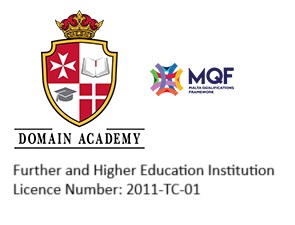Master of Psychology in Health Psychology
The course imparts to the learners the required knowledge, understanding and skills, as well as insight into the different roles and tasks performed by health psychologists.
Intake
March & October
EQF / MQF Level
Level 7
Mode of Delivery
Traditional
Duration of Course
3 Academic Years, Weekends (Saturday and Sunday), 15 hours per Weekend, 45 Weekends over 3 Years
Operational End Date
N/A
N/A
ECTS Credits
120 ECTS
Programme Qualifies for
Get Qualified Scheme
Endeavour Scholarship Scheme
TESS - Tertiary Education Scholarship Scheme
Certificate after completing
Student Success Rate
100
Intake
March & October
EQF / MQF Level
Level 7
Mode of Delivery
Traditional
Duration of Course
3 Academic Years, Weekends (Saturday and Sunday), 15 hours per Weekend, 45 Weekends over 3 Years
Operational End Date
N/A
N/A
ECTS Credits
120 ECTS
Programme Qualifies for
Get Qualified Scheme
Endeavour Scholarship Scheme
TESS - Tertiary Education Scholarship Scheme
Certificate after completing
Student Success Rate
100
Course Description
The course is based on the biopsychosocial model approach to health and wellbeing for children, adults and older adults. The learners will have the opportunity to learn about mental health and sexual health issues, which are areas that they can encounter in their practice, yet not usually focused on. This will equip the learners with a holistic approach to practising as health psychologists.Furthermore, the programme focuses also on the promotion and psycho education of physical health and health behaviours.
The learners will have the opportunity to choose and conduct research related to an area within health psychology and thus to gain a deeper understanding of the topic. This Master leads learners to work under clinical supervision for 2 years prior to applying for a psychologist’s warrant in Malta with the Malta Psychology Profession Board.
This programme has exit award milestones along the path.
Target Group:
Graduates in Psychology and other related Health and Social Sciences
Target Audience:
- 21+
Course Language:
English
Where you will learn:
What you will study
How will you learn
This degree is delivered with a flexible classroom-based method, through a variety of course materials, case studies, discussions, presentations, enquiry-based learning and problem-solving activities. We provide you with key reading and research activities, and you will make the most of our own teaching portal.
Where you will learn:
Lessons will be held in class in our premises at Domain Building, 102/104, Constitution Street, Mosta.
Your Lecturers
Assessment
Assessments will be designed according to the guidelines of each module specification. In general, the assessments will enable learners to demonstrate achievement of learning outcomes across the individual elements of the programme. The range of assessments utilised will normally include: essays, reports, presentations and other structured assignments and examinations.
Assessments are drafted in conjunction with the curriculum development department and tutor concerned. Final version is confirmed by the curriculum development department.
Assessments are moderated by tutor concerned, then also verified by the Internal Verifier.
The programme maintains a rigorous academic standard, with an overall pass benchmark set at 65%. This threshold underscores the commitment to fostering a high calibre of knowledge, critical thinking, and analytical skills among students.
.png)
Entry Requirement
The Course is be open to applicants who are in possession of the following qualifications:
(a) a Bachelor degree in Psychology, or an equivalent qualification from a reputable University, or
(b) a Bachelor degree in another health or social work related degree (MQF Level 6) or an equivalent qualification from a reputable University, or
(c) a Bachelor degree in Psychology or a Bachelor degree with Psychology as a main area of study, in both cases obtained with at least Category IIA or another degree in a related area deemed relevant by the Board of Studies provided that all applicants applying in terms of this paragraph would either have obtained 60 ECTS credits in Psychology, as approved by the Board, following the award of their degree, or have obtained the Higher Diploma in Psychology, which together with their degree are deemed to be comparable to the qualification indicated in paragraph (a).
(d) In the case of learners whose first language is not English, then IELTS 6 (or equivalent) is required.
Applicants referred to in the above paragraphs are also required to have either(i) a minimum of 2400 hours of experience in a health setting, or (ii) a minimum of 1200 hours of experience in a health setting, under the supervision of a warranted psychologist. This experience should normally be obtained after applicants have been awarded the qualification indicated in the above paragraphs.
Learners will be admitted into the course following an interview, which shall be weighted as follows:
(a) qualifications –20%
(b) work experience in the area or a related field – 15%
(c) professional aptitude and disposition – 55% and
(d) letters of recommendation – 10%.
Professional aptitude and disposition shall be measured by means of exercises involving a
(1) personal interview by an academic, a health psychologist and a psychotherapist,
(2) Graduate Record Examination and
(3) an Objectively Scored Clinical Examination (role play with a client).
Fees & Funding
MFHEA Licence Nº: 2011 – TC – 01
Further and Higher Education Institution
Listen to what our past students had to say;
Domain Academy proudly collaborates with:



28 Years
of Excellence
8,000+
Satisfied Alumni
98%
Student Success Rate
250+
Active Students


















